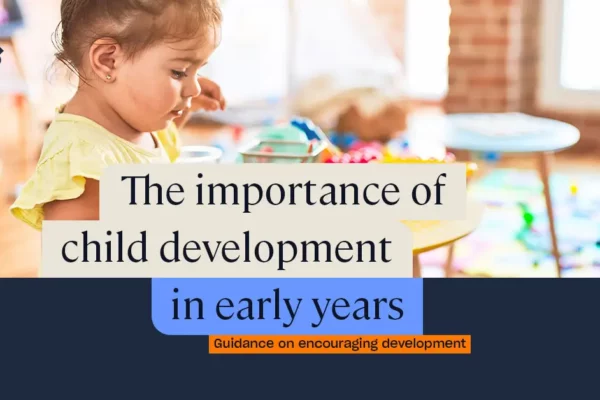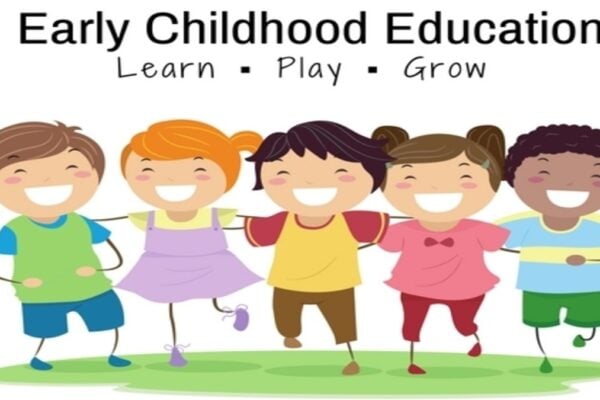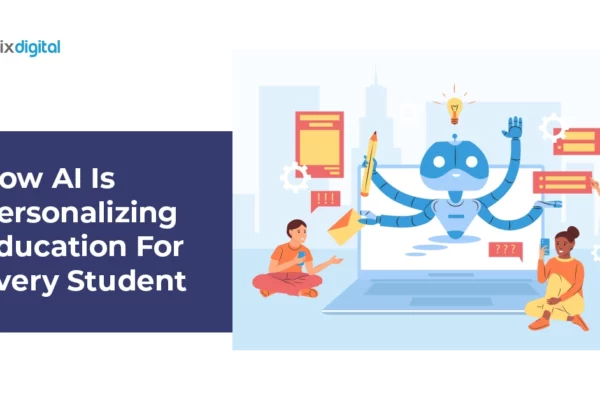The Importance of Early Childhood Education
As a parent, I have always believed in the power of education. From the moment my child was born, I knew that providing a solid foundation for their learning was crucial. That’s why I made the decision to enroll my child in an early childhood education program. Early childhood education, also known as preschool or pre-kindergarten, is a critical stage in a child’s development. It sets the stage for future learning and lays the groundwork for success in school and beyond.
The Cognitive Benefits of Early Childhood Education
One of the key benefits of early childhood education is its impact on cognitive development. During these formative years, children’s brains are like sponges, soaking up knowledge and experiences at a rapid pace. In a well-designed early childhood education program, children are exposed to a wide range of activities that stimulate their thinking and problem-solving skills. They learn to recognize letters, numbers, shapes, and colors, and develop their language and communication skills. These early cognitive skills provide a solid foundation for future academic success.
Research has shown that children who attend high-quality early childhood education programs perform better on measures of language and cognitive development compared to their peers who do not have access to such programs. They have better language skills, a larger vocabulary, and enhanced memory and attention span. This early boost in cognitive development not only helps children succeed academically but also equips them with the necessary tools to navigate the challenges of the modern world.

The Social and Emotional Benefits of Early Childhood Education
In addition to cognitive development, early childhood education also plays a crucial role in fostering social and emotional skills. During this period, children are learning how to interact with others, share, take turns, and develop empathy. They are exposed to a diverse group of peers, allowing them to build friendships and learn about different cultures and perspectives.
Early childhood education programs create a nurturing and supportive environment where children can develop important social and emotional skills. They learn how to manage their emotions, resolve conflicts, and work collaboratively with others. These skills are not only important for building positive relationships but also for success in later life. Research has shown that children who have strong social and emotional skills are more likely to have positive mental health, better academic outcomes, and successful careers.
The Long-Term Effects of Early Childhood Education
Investing in early childhood education has long-lasting effects on a child’s life. Studies have shown that children who attend high-quality early childhood education programs are more likely to graduate from high school, attend college, and have higher earning potential in their adult lives. They are also less likely to engage in criminal behavior or rely on public assistance.
The impact of early childhood education extends beyond individual children. It has been shown to have positive effects on communities and society as a whole. By providing children with a strong educational foundation, we are setting them up for success and reducing the achievement gap. Investing in early childhood education is not just an investment in our children’s future, but in the future of our society.
The Role of Early Childhood Educators
Early childhood educators play a vital role in the development of young children. They are trained professionals who understand the unique needs of young learners and provide them with a safe and stimulating environment. They create lesson plans that cater to different learning styles and interests, and they foster a love for learning in their students.
In addition to teaching academic skills, early childhood educators also support children’s social and emotional development. They help children navigate social interactions, teach them how to express their feelings, and provide guidance in developing positive behaviors. Early childhood educators are not just teachers; they are mentors, role models, and advocates for young children.
Creating a Supportive Learning Environment for Young Children
A supportive learning environment is crucial for the success of early childhood education. Young children thrive in an environment that is safe, engaging, and nurturing. Early childhood educators create such an environment by setting clear expectations, establishing routines, and providing a variety of hands-on learning experiences.
In a supportive learning environment, children are encouraged to explore, ask questions, and take risks. They have access to age-appropriate materials and resources that foster their curiosity and creativity. They are given opportunities to collaborate with their peers and develop their problem-solving skills. By creating a positive and inclusive learning environment, early childhood educators set the stage for a lifelong love of learning.
The Impact of Early Childhood Education on Future Academic Success
Research has consistently shown that early childhood education has a significant impact on future academic success. Children who attend high-quality early childhood education programs are more likely to perform well in school, have higher graduation rates, and pursue higher education. They have a solid foundation of literacy and numeracy skills, as well as critical thinking and problem-solving abilities.
Early childhood education provides children with a strong start in their educational journey. It introduces them to the joy of learning and teaches them important skills that they will build upon in later grades. By investing in early childhood education, we are not only giving children a head start academically but also setting them up for a lifetime of success.
The Cost and Accessibility of Early Childhood Education
While the benefits of early childhood education are undeniable, there are challenges when it comes to cost and accessibility. Quality early childhood education programs can be expensive, making them out of reach for many families. This lack of access to affordable early childhood education exacerbates existing inequalities and contributes to the achievement gap.
It is crucial for policymakers and communities to prioritize early childhood education and work towards making it more accessible for all children. This includes increasing funding for early childhood education programs, providing subsidies for low-income families, and expanding the availability of high-quality programs in underserved communities. By investing in early childhood education, we are investing in the future of our children and our society.
The Role of Parents in Early Childhood Education
Parents play a critical role in their child’s early education. They are their child’s first and most important teachers. By actively participating in their child’s learning journey, parents can enhance the benefits of early childhood education.
Parents can create a supportive learning environment at home by reading to their child, engaging in meaningful conversations, and providing opportunities for play and exploration. They can reinforce the skills and concepts learned in the classroom and extend the learning beyond the school walls. By partnering with early childhood educators, parents can ensure that their child receives a well-rounded education that supports their overall development.










Comments on " Building Strong Foundations: The Benefits of Early Childhood Education" :